This is the last part of Anne Wade’s article on Rochdale and Beyond.
Third Episode of child abuse 1998- ongoing – CSE
From 1998 stories began to circulate of a gang of British Pakistani Muslim taxi drivers abusing large numbers of girls in Rochdale. They were targeting white girls, in their early teens or younger, often but not always from broken homes, some but not all in care. This was actually one of the early cases of a child sexual exploitation and trafficking gang, but at first no-one made sense of it or took it seriously. I remember hearing fragments at the time and wondering, ‘Is there something new going on here or not?’
I noticed how negligent some care homes had become. What was happening? I had not known the extent of privatisation and the consequent fall in standards of care in some, not all, of the homes. But many of these girls were still living at home, perhaps somewhat out of control but with caring, anxious parents, so that was only part of the answer. Schools were reporting concerns and getting no response from social services. Parents made the same complaint. Social services in many parts of the country appeared to be falling apart.
Victoria Agoglia, victim and whistleblower, died in 2003
One of these girls was Victoria Agoglia: at 13 she wrote this heart breaking cry for help, in which she describes being drugged and raped by numberless unknown older men:
Victoria was born in 1989 and was fine until her mother died when she was eight. Her stepfather was an inadequate carer and she was taken into care a year or two later. This also proved to be inadequate. She sought help from her local NHS crisis intervention team, and was described by sexual health worker Sara Rowbotham as “bright, funny and engaging”.
DC Maggie Oliver sent her letter with a report to the local police, but a half-hearted investigation into the sexual abuse of many girls by older men, Operation Augusta, was closed down in her absence during three months compassionate leave. Nothing was done and the child died of an overdose two years later.
This child’s death was manslaughter by gross institutional negligence, within the definitions of the Adomako test. This includes the denial by police and social services of reports of child sexual exploitation by Sara Rowbotham and Maggie Oliver, until Nazir Afzal took action to review their cases.
A major obstacle for the local authority was that such allegations seemed racist, which was more heinous to some people than child sexual abuse.
Another was that these girls, like the boys Smith abused, were seen as ‘white trash, rubbish kids in care, already damaged goods, who were probably asking for it’. This was the explicit attitude of some social workers, who told concerned, loving parents that prostitution was the chosen life-style of these children. Actually, they were mostly normal rebellious young teens and pre-teens, some but not all disadvantaged and vulnerable, who all deserved better care than they got from some of the police and social workers. As sexual health worker Sara Rowbotham says in the TV docudrama Three Girls, ‘There’s no such thing as a child prostitute: what there is, is a child who is being abused.’
Another obstacle, it is alleged, was that police, themselves already caught up in previous paedophile activity, participating or covering up for Cyril Smith’s network, took backhanders from these men to turn a blind eye.
Sara Rowbotham, sexual health worker and whistleblower played by Maxine Peake in Three Girls
Sara Rowbotham spent years trying to get police, the council and social workers to take the grooming, abuse and trafficking seriously.
PC Maggie Oliver, whistleblower, resigned from Greater Manchester Police because they failed the victims, played by Lesley Sharp in Three Girls
Maggie Oliver was a brave detective trying to do the same. Some of the parents were beside themselves trying to keep their daughters safe while some of the police colluded corruptly with the gangs. For years nothing serious was done to stop the gangs. It was repeatedly alleged that the gangs were paying off some of the police. It was admitted that the police assigned to the case were untrained.
Three Girls was followed a little later on BBC1 by a documentary, The Betrayed Girls, which gave more details of the difficulties over racism, and the complex reactions of the Muslim community.
Ann Coffey, MP and whistleblower
Ann Coffey MP for Salford wrote an excellent independent report in 2014, Real Voices. This described child sexual exploitation in Greater Manchester, using young people’s own accounts and photos. She has recently written a follow-up report.
The latest manifestation of the victim blaming is seen with the Criminal Injuries Compensation Authority (CICA), which takes it upon itself to deny some children compensation, inadequate to start with, because it deems them to have been complicit in their abuse. This fails to understand grooming and fails to accept the best professional judgment of what happens with these children. It is a crime to engage in sexual activity with a child because a child is not capable of giving fully meaningful consent. They cannot legally be complicit in their abuse. Therefore they cannot legally be denied criminal compensation. Perhaps the CICA rules should be challenged in the High Court.
Back to Knowl View: in 2000, DS Bob Huntbach, head of the domestic violence and child abuse unit in Rochdale, led a further enquiry into the abuse around Knowl View. He has spoken openly about the way he was misled by the Council, including the fact that Phil Shepherd’s damning 1991 report was withheld from him and his team. This alone was a cover-up, since Shepherd’s report contained all the most significant information, and Huntbach was ready and able to act on it.
More and more was coming out. The Council enquiry was stopped, because they could not be trusted to investigate their own shortcomings. But who could be trusted to investigate? Over the years some senior police officers had also fallen very short. There were many excellent people in the area, but there were corrupt people in every department. There was talk of calling in the Home Office, but even more problems had been flagged up there over covert support for PIE, and apparent cover-up of government misbehaviour. Indeed, it was becoming apparent that a lot of the problem was arising from government and the rest of the establishment.
In 2001 Ronald Hall, assistant director of Manchester social services, was arrested as part of Operation Cleopatra. He was jailed for 11 years for 21 counts of historic sexual and physical abuse at a different children’s home, Broome House, in Didsbury. His deputy at the home, Ian Gray, was given a 14 year sentence for serious sexual abuse.
Judge Andrew Chubb, suspicious death
In 2001 Judge Andrew Chubb met a suspicious death when a lawnmower exploded in his garden shed. There were technical details that made this unlikely, and the fire brigade immediately reported it as a suspicious death to the police. Like so many of these deaths, it was the attitude of the police, who seemed to want to dismiss it without investigation, that raised as much suspicion as the death. Chubb did not live nearby, and his death is only raised here because of so many other suspicious deaths of judges, senior police, and others, combined with this strange reluctance of police to investigate properly.
In 2002 Mike Todd took over as Chief Constable at Greater Manchester, and caused considerable bad feeling by starting to clean up corruption, forcing eleven police officers to resign. He offended and alienated others who were involved. He died in 2008 in suspicious circumstances before completing this task (see below). There were also rumours that he knew too much about extraordinary rendition for the comfort of the government.
In 2002 Smith’s friend David Higgins was at last convicted for sexual abuse at Knowl View School in 1971, though he was only jailed for 2 years. More was still to come out.
In 2007 Peter Righton died aged 81, having never been brought to account for all his sexual abuse of children.
Judge Rodney Mckinnon convicted paedophiles
In 2007 Judge Rodney Mckinnon apparently jumped to his death from his flat in Dolphin Square, after convicting various high profile paedophiles. Several things made genuine suicide unlikely. As with the death of Iain Mills ten years earlier, it seemed more likely that he was paying for combatting paedophilia, or that he had seen untoward events around sex parties in the flats. Another strange death at Dolphin Square and yet again Paul Knapman was responsible for the inquest, and police and coroner seemed only too eager to dispose of the case.
Dolphin Square is a dangerous place to live, at least for anyone opposing paedophilia. And the Westminster coroner, Dr Paul Knapman, was coming under increasing criticism for various decisions.
Sergeant Richard Fuller, head of security for Parker-Bowles’ manor house
On 10 March 2008 Sergeant Richard Fuller, head of round-the-clock security at an ostensibly little-used country house, Ray Mill near Lacock in Wiltshire, belonging to the Duchess of Cornwall, had apparently shot himself to death. No-one seems to understand why the tax payer should contribute £2,600,000 a year for the upkeep of this manor house, or what it is used for. The only record of the house being used is for the wedding of a Parker-Bowles daughter. What else goes on there? Why does it need so much security? Why do we have to pay for it? Fuller’s death was unexplained – the usual list of personal reasons – but might have passed unnoticed had it not been followed immediately by those of two more police officers.
CC Mike Todd: he forced resignations of 11 corrupt/racist cops
The day after this, 11 March 2008, Greater Manchester Chief Constable Mike Todd supposedly fell off the 300-foot Bwlch Glas in Snowdonia without injuring himself, drank himself so silly that he collapsed in the snow but was barely over the limit, though there was a strong smell of gin on him and around, stripped off most of his clothes and died of exposure. He was an experienced mountain walker. He had arranged to meet a whistleblower up there. There was much debate about whether this was a suicide, and an open verdict. North West Wales coroner Dewi Pritchard-Jones said there was not enough evidence to rule that Mr Todd deliberately intended to take his own life in the isolated spot on Snowdon where his body was found.
Inspector Neil Munro with his wife Emma and son Jack; ‘fell off’ a ferry while investigating child sexual abuse in Haut de la Garenne and the élite yachting community
Then 13 March 2008, Inspector Neil Munro, 20 years with Dorset police, was found dead in Poole harbour, caught under the jetty of a sea-front mansion belonging to a Manchester property dealer. It was widely reported that he had bad head injuries and a ticket for the night ferry in his pocket. It was unclear whether he had fallen/jumped/been pushed off a ferry or been murdered on-shore and dumped in the sea with the ticket put in his pocket. Dorset chief constable Martin Baker, previously an inspector (with GMP!), denied any head injuries and said the death was not suspicious. Another biddable chief constable?
But Munro was investigating the élite yachting community, following claims that children from Haut de la Garenne children’s home on Jersey, and other children from Islington and other English children’s homes ‘holidaying’ there, were being trafficked to wealthy yachtsmen to be abused; some were said to have been murdered when they recognised their abuser as Ted Heath on Morning Cloud, or as Heath’s bodyguards referred to it Morning Sickness – just knocked on the head and dropped off in deep water. Munro had collected considerable evidence, which disappeared on his death. He was very concerned about the death of Mike Todd. Coroner Sheriff Payne recorded an open verdict on Munro, saying: ‘I do not feel all explanations for him ending up in the water have been resolved. There may be a strange explanation we are unaware of.’
In all, three police officers died in inadequately explained circumstances in four days. Stress and personal problems were given as reasons for all of them, but they had no more than most senior police, and officers working in child protection were concerned that some or all had been ‘suicided’.
Linda Corby, author and whistleblower
Linda Corby has written that following a tip-off, she and a Jersey senator watched 11 children go out sailing with Ted Heath, and 10 come back. The mum from St Helier said she and the senator went to police HQ to make a statement but a few days later officers told them ‘someone above’ had told them not to investigate, and later they ‘lost’ her statement. Other witnesses have described children being taken out on the Morning Cloud and coming back crying. There are many similar stories, and masses of links with Islington children’s homes and through them with Suffolk centres such as that on the Henniker estate.
Eileen Fairweather, investigative journalist and whistleblower
Eileen Fairweather has researched and written about the abuse on Jersey and elsewhere for years. One of the repeated experiences she has written about has been of junior police officers, some very frightened, coming to her with information about paedophiles that their senior officers have forbidden them to follow up or pass on appropriately.
Complaints about paedophile gangs in Rochdale continued. Gradually I collected reports from other areas, Derby, Oxford, Telford, Rotherham, Bradford, Keighley, Blackburn, Bristol, Preston…
Mohammed Shafiq, youth worker and campaigner
add photo
In 2006 Mohammed Shafiq, a youth worker, married with three daughters, initially became aware of the problem of British Pakistanis abusing very young girls in Blackburn. He then found it in his home town of Rochdale and started campaigning against it.
In 2008 Shabir Ahmed and Kabeer Hassan were arrested and questioned following a complaint of rape from a young girl (Holly in the film Three Girls), but nothing further happened. It took the police 11 months to send the file to the CPS. Just as the DPP had refused to prosecute Smith 40 years earlier, and for the same non-reason described by Danczuk, the DPP decided, apparently on the advice of the police, that the witness would not be credible. He refused to prosecute, despite Ahmed’s DNA being on the girl’s underwear. Just as with Smith, this refusal to prosecute led to the gang becoming absurdly arrogant; they boasted to the girls that they were untouchable, making them feel more helpless. Sexual exploitation became the norm for a huge number of girls. 47 were named by the police, but many more were known. In a similar episode in Rotherham, a similar sized town, Alexis Jay estimated that 1,400 girls had been abused.
In 2009 Savile’s last recorded offence took place. So far at least 500 offences are known.
In 2009, the year before Smith died, RAW, Rochdale Alternative Website, the successor to RAP, talked of his ‘simplistic gut feelings, shallow political opportunism and aggressive sniping – that is the political legacy of Cyril Smith in Rochdale. Bluff, bullshit and bullying well mixed with cover up, murky deals and secret societies benefitting from the mess.’
That was indeed what Smith bequeathed on Rochdale. RAW went on to describe vividly the invidious position the boys Smith had abused were in.
Judge William Everard, pursued paedophiles, suspicious death
In 2009 Judge William Everard died in strange circumstances. He too had convicted paedophiles. It was claimed he had been drunk and drowned in a couple of inches of water. But friends said he was not drunk when he left the village pub to walk the short way home.
In 2009 Jack Straw, then Lord Chancellor and Justice Secretary under PM Gordon Brown, instead of taking steps to help protect children from abuse, tried to make it illegal, in Part 2 of the Children, Schools and Families Act 2010, for children in care homes to complain of abuse. Fortunately the Justice Select Committee intervened, and repealed this section under section 17(4) of the Crime and Courts Act 2010 before it was enacted. I have a copy of an FOI request where this was confirmed by the Ministry of Justice.
It beggars belief that Straw could be so brazen. He should be called to a televised hearing of IICSA, in the way the Australian Royal Commission held high officials like Cardinal George Pell to public account. They are unlikely to get an admission or evidence of collusion, but let the public see just how plausible his denials are, as we did Pell’s.
In 2010 Smith died aged 82, followed a year later by Savile, aged 85. Looking back at their offending careers, they belong to the minority of predatory paedophiles who abuse an astonishing number of children. Even so, Sir Cyril and Sir Jimmy were in a different league from most we know of, because of the way they were protected and therefore enabled by the establishment – by influential members of national and local government, royalty, the police, the secret services, the civil service, social services, the media – every institution they touched. And, but for the chance discovery by customs, Righton almost managed to become ‘Sir Peter’ with them.
In 2011 a blue plaque to Smith was put up. In 2012, the then Rochdale MP Simon Danczuk spoke out, demanding a full investigation into the allegations against Smith. The blue plaque was removed ‘to prevent any vandalism’. So was Savile’s headstone, as complaints about him came out and the family gave up protesting his innocence.
In perhaps 2011, more of the Attorney-General Michael Havers’ cover-up was revealed when Cabinet Office minutes from 1983 were released – the 30 year rule had begun to be gradually reduced. The minutes showed that he had restricted the scope of the Kincora inquiry, in order to protect MPs and other prominent public figures. This rigging of an inquiry and cover-up of child sexual abuse in a Northern Ireland children’s home had been alleged for years, and whistleblowers had been denigrated and even imprisoned where they could be claimed to have broken the Official Secrets Act. This is what we have been worried will be done to IICSA. Havers’ sister Elizabeth Butler-Sloss also covered up sexual abuse of young people in inquiries she ran.
Nazir Afzal, CPS and Ace Bhatti who played him in Three Girls
In 2011 the CPS appointed Nazir Afzal to be the NW chief crown prosecutor, and he reversed previous decisions and prosecuted the men who were exploiting the girls.
In 2012 nine men were convicted of child sexual exploitation: Shabir Ahmed, 59, the ringleader of the gang, inappropriate behaviour in court, 19 years. Throughout the trial, he showed no remorse. He tore out clumps of his own chest hair in the witness box and made a female court interpreter run crying from the room. Delivering a bilious rant from the dock, he dismissed the accusations as “white lies”, cursed the “bent bastards” who had brought him to trial and denounced everyone from the prosecution lawyer and Theresa May to Tony Blair and Margaret Thatcher. Kabeer Hassan, 25 claimed he was too young and innocent to understand what was going on, 9 years. Abdul Aziz, 41, married, a father, ferried girls to Leeds, Bradford etc and sold them off, 9 years. Abdul Rauf, 43, married, a father, sacked by the mosque under dubious circumstances, irritated co-defendants by praying non-stop under his breath, was punched by one for it, 6 years. Mohammed Sajid, 35, married, a father, 12 years. Adil Khan, 42, married, a father, made an underage girl abort a pregnancy, claimed they weren’t girls, they were women, 8 years. Abdul Quayyum, 43, married, a father, ‘a pillar of Rochdale’s Pakistani’s community’, ‘has fully adopted the British way of life’ according to references two councillors, Zulf Ali and Aftab Hussain, wrote for the jury, 5 years. Mohammed Amin, 44, 5 years. All of Pakistani origin; and Hamid Safi, 22, an Afghan asylum seeker, 4 years.
The crimes detailed by Operation Span, which led to the conviction of these nine men in 2012, were the same as those identified ten years earlier in Operation Augusta. Even though they were brought to account, the charges, which should have been rape in most cases, were minimised and they were out of jail too soon.
A month later, Shabir Ahmed was convicted, in a further trial, on 30 counts of child rape. This time his victim was Asian. The abuse had gone on for longer than a decade, but it was not until after Ahmed’s arrest in the grooming case that his victim found the courage to give the police full details of what she had suffered.
In 2012, when news about these convictions came out, a girl walked into Rochdale police station saying she knew about the grooming. She reported that when she was aged 14 and 15 she was repeatedly sexually groomed by a large number of men from the Rochdale area. The victim – described by prosecutors as an ‘extremely vulnerable young woman’ who had had a difficult home life and a learning disability – said her phone number had been passed around and that hundreds of men would ring her wanting to meet for sex.
This led to another large investigation, Operation Doublet, with many men arrested, many previous complaints from girls being re-opened and more girls traced.
In 2012, the Independent Police Complaints Commission and the Association of Chief Police Officers reported on the abuse of police powers [dead link, see archive and pdf below] to perpetrate sexual violence.
It was good as far as it went. It would not be helpful in a situation where a significant proportion of a force was sexually corrupt.
On 27 November 2012 a statement was put out by the CPS by Nazir Afzal, discussing the previous decades of decisions not to prosecute abusers – Smith and his network, and these gangs of exploiting men. He had also done good work in tackling so-called ‘honour’ based violence and forced marriage. Keir Starmer, the then DPP, had appointed him to head a new national network of specialist prosecutors for child abuse and sexual exploitation.
In 2013 Keir Starmer resigned, and Alison Saunders, the DPP who made excuses and delayed any prosecution of Greville Janner until it was too late, took over.
In 2013 Commander Peter Spindler was leading the police criminal investigation into organised paedophiles and the abuse of children at Grafton Close children’s home and Elm Guest House in Lambeth, as well as other leading paedophile cases. After announcing (why don’t people just do something quietly before announcing it?) that the Metropolitan Police were about to arrest a former Tory Cabinet minister, he was taken off the investigation and moved sideways to another job. Nothing more was heard about arresting the minister.
In 2014 Operation Clifton started looking into an alleged cover-up during the years 1985 to 1995 of child abuse, with Andrew Warnock QC leading. It was taken over in the April by Neil Garnham QC.
Phil Shepherd, who wrote the damning report about Knowl View in 1991, complained on Channel 4 that still no-one from the Council or Health department had spoken to him.
On 7 July 2014 Peter Fahy, chief constable of GMC – himself implicated in at least looking the other way – asked the Council to stop investigating as they were too involved in the cover-up to consider it. But so were Greater Manchester Police!
On the same day Theresa May, at that point still running the Home Office, announced the original inquiry into institutional child sexual abuse under Elizabeth Butler-Sloss, the government's safe pair of hands, until protests from an appalled public forced Butler-Sloss to stand down. At first these protests were mainly about the influence of her relationship with her brother Michael Havers, the attorney general who had not only covered up for prestigious paedophiles but had also come under suspicion himself. But pressure about her own failures soon followed. For instance she admitted that she had covered up the abuse of Bishop Peter Ball because she cared about the Church.
All this led to doubts about the good faith of the government in setting up the inquiry. What does it say about Theresa May’s integrity that she should appoint such a woman?
In 2014 Smith’s friend David Higgins was convicted to 14 years for abuse, not at Knowl View but in Leeds. This was a different boy from the one he was convicted of assaulting in 1976, for which he had had a conditional discharge. Higgins was the only one of Smith’s network to be convicted. He had still not been fully prosecuted for Knowl View. More survivors made complaints, including more from Knowl View, and further cases were waiting to be heard.
In November 2014 Simon Danczuk and his parliamentary aide Matthew Baker published Smile for the Camera: the Double Life of Cyril Smith, an exposé of the abuse committed by Smith, in what was now Danczuk’s constituency of Rochdale. As a result Danczuk was asked for support by a flood of survivors, which was beyond his capacity to cope with. It made him understand the stress of working with survivors, and in the end he had to say he could not take any more. He apparently behaved chaotically, sometimes inappropriately, and the stories were increased by disinformation that was broadcast about him to bring him into disrepute. As so often happens for whistleblowers, it was impossible to distinguish truth from propaganda and black ops. Some of the mud tends to stick, although sometimes there are no grounds for it.
Andrew Brown, whistleblower and survivor
Andrew Brown, a businessman from Rhyl, appeared in court in October 2014 to disclose abuse by paedophile ex-police sergeant Don Mackintosh for two years when he was a child. Mackintosh was remanded on bail.
In October 2014 Don Mackintosh was found hanged at his home in Stalybridge – by his own hand or another’s? He had been due to face another trial in May 2015 for fresh child sex allegations dating back to the 1970s. In February 2015 the officer he had threatened with the Official Secrets Act in 1988 received an anonymous call from a man who said: ‘There may be an investigation – keep your mouth shut.’ So police corruption, with threats of extreme violence, was continuing in 2015.
In December 2014 MP John Mann gave Scotland Yard a file with detailed evidence of five paedophile networks at Westminster, involving 22 politicians.
In 2015, just as the CPS was at last dealing properly with the child sexual exploitation in Rochdale, the chief crown prosecutor for the north-west, Nazir Afzal, stood down in unclear circumstances. The Manchester Evening News reported in March 2015 that he had resigned ‘after being cleared of alleged impropriety’ – he was accused and then cleared of sending a text to a defendant – which sounds like typical MI5 dirty tricks towards whistleblowers. At the same time he was ‘being made redundant as part of government savings’. Apparently Nazir Afzal was ‘let go’ by DPP Alison Saunders, who was being widely criticised for returning to the previous CPS practices of covering up for paedophilia networks in general, in order to protect it within the establishment.
Afzal had criticised earlier CPS decisions on the decades of abuse in Rochdale since 1970. He had reversed the CPS stance and successfully prosecuted Shabir Ahmed and his gang in 2012. A similar case was well under way. We have seen that the previous DPP Keir Starmer appointed him to head a new national network of specialist prosecutors for child sexual abuse and exploitation because of his work on ‘honour’-based violence and forced marriage. Was he sacked from that too, or not?
Was it particularly the last of these that led the government to get rid of him? Just think how he could have worked with IICSA. Just imagine him live-streamed with them. What a threat that would have been to establishment paedophiles and their helpful friends. If that suspicion appears to be based on insufficient evidence, try combining it with the situation for another arm of the criminal justice system:
On 9 July 2014 Chris Hobbs, a retired special branch officer, told Sky news that it was clear that quite a few officers, from the rank of commissioner and chief constable to detective level, would know something about allegations of child abuse among politicians three decades ago, and would speak out if there was protection from the Official Secrets Act. Peter Garsden, president of the Association of Child Abuse Lawyers, pointed out that this must not include letting them off child abuse allegations themselves.
In 2015 some MPs asked David Cameron to guarantee that police who gave evidence to IICSA would not be disciplined in any way or face charges under the Official Secrets Act, as most police officers still feel too threatened to speak out about these issues.
Instead of simply agreeing, as he would have done had he been backing IICSA, Cameron put it to Parliament, who voted against it, disgusting most of the public. Theresa May as Home Secretary gave a typically weak response: ‘would not expect them – I would hope them not to be prosecuted under the Official Secrets Act.’ Unsurprisingly, as they see what happens to whistleblowers, police do not feel confident that this is enough to ensure their jobs and pensions – and lives – are safe. It does, however, ensure that any establishment paedophile networks continue to feel safe.
Theresa May should be challenged again now she is PM. This is something decent she could do for the country without any expense. As Danczuk said,
‘There has to be a more formal response from government, which says that former police officers who co-operate, give evidence and share their knowledge of what went on with regard to this alleged cover-up should not be disciplined in any way, with regard to the Official Secrets Act or in any other way.’
In October 2015, John Mann passed on to the police another file dealing with the Westminster child abuse when he was given another copy of Geoff Dickens’ second dossier, which he also showed to the BBC.
Barry Bennell was jailed again in 2015 and in 2016 was out on licence under an assumed name, which soon became known. Why was he released so soon? More and more people have been coming forward with complaints about him. Because of football’s macho culture, individual football stars are only now beginning to disclose that they were abused, and revealing how it wrecked their careers and lives. Andy Woodward went public, and then six more professional footballers did the same, and soon it was twenty, then forty. Within two hours of a helpline being opened, more than 50 other men had made complaints, and in a week it was 860. It is now obvious that an extensive paedophile network existed, and survivors believe hundreds and probably thousands of boys were abused. This time no-one questioned the credibility of the disclosures. Eddie Heath, Chris Gieler and others have been named along with Bennell and the list grows all the time.
In April 2016, the second Rochdale sex trafficking gang, consisting of 10 men, was convicted. Afraz Ahmed, 33, rape, conspiracy to rape and sexual activity with a child, 25 years in jail. Another defendant, 40, who cannot be named for legal reasons, rape and attempting to abduct a child, 23 years. Choudry Ikhalaq Hussain, 38, convicted in his absence of rape, sexual activity with a child and conspiracy to rape; absconded during trial currently believed to be in Pakistan, 19 years. Mohammed Dauood, 38, rape, sexual activity with a child and sexual assault, 16 years in jail. David Law, 46, of Ilkeston, Derbyshire, conspiracy to rape, 11 years. Rehan Ali, 27, rape and sexual activity with a child, 7 years. Kutab Miah, 35, rape and sexual activity with a child, 9 years. Abid Khan, 38, sexual activity with a child, 6½ years. Mohammed Zahid, 54, sexual activity with a child, 5 years. The 10th man, Mahfuz Rahman, 29, is serving a five and a half year sentence at Garth prison, having pleaded guilty in September 2015 to three counts of sexual activity with a child.
This time there were charges of rape, as there should have been in the first trial, and consequently longer sentences.
On 29 Sept 2016 there was a sudden announcement out of nowhere from the CPS, now with Martin Goldman as chief crown prosecutor for the north-west and Alison Saunders as DPP, that there would be no more action over Cyril Smith and the inquiry into Knowl View was closed. Back to the days of the Criminal Protection Society. David Higgins and others will not face further prosecutions, despite the demands of other survivors who are still waiting to be heard. There were protests from the survivors waiting to go to court. There was no explanation. Could this have happened if Nazir Afzal had still been in place? Was that why he was removed?
In February 2017 we learned that Operation Clifton had found that there was no cover-up of child sexual abuse at Knowl View… unsurprisingly. I have accumulated enough evidence here, from publicly accessible sources, to show this is itself yet another cover-up. No doubt survivors and decent professionals in Rochdale can add to my account. The people responsible for Clifton should be brought before IICSA on TV to account for how they interpreted this evidence as something other than a cover-up. Again, as with Cardinal George Pell in the Australian inquiry, they may not be proved guilty but the public will be able to see how feeble their answers are.
So the Rochdale child sexual abuse story still has no conclusion. There is still a massive cover-up. Corrupt police officers still operate there, having perhaps disposed of their biggest threat, chief constable Mike Todd. Some council staff are still lying. Unless IICSA can really dig out the roots of child sexual abuse in Rochdale, it will continue in some form. At the moment that looks like being more trafficking and child sexual exploitation, probably developing an online aspect. This appears to be extending to boys now as well as girls. I have not made any attempt to explore online abuse, because I have no expertise in it. No doubt other novel ways of sexually abusing children will evolve if the community is not cleaned up and strengthened.
People unconnected with the problems are impressed that 19 men have been imprisoned in connection with CSE, and yet this is trivial in the light of the descriptions by young people and youth workers of the reality of mass harassment. Despite having been individually reported, at least a hundred of these men still dominate the streets, intimidating past victims and looking for – the revolting term they use – ‘fresh meat’.
Survivors want IICSA to look at their cases and give them public justice, while an extraordinary number of politicians and other establishment figures appear to be undermining the Inquiry. Drusilla Sharpling, the lead for the Rochdale strand, has shown herself trustworthy in past cases. Will she be allowed to do the job properly? We all know why Butler-Sloss and Wolf were unacceptable as chairs, but we are concerned about what happened with Goddard, and we are anxious to have full and honest disclosure about it. The fourth chair, Alexis Jay, has proved herself by doing a good job in similar, though less public, circumstances in Rotherham.
Rotherham was a child sexual abuse investigation on the scale of one of the 13 strands in the IICSA investigations. It produced a result which satisfied most of the public as being competent and open, unlike those, for instance, in North Wales, where the Jillings report was suppressed at the insistence of Municipal Mutual Insurance for fear of compensation costs. Tim Hulbert, the whistleblower in the Home Office, reported this as common practice by insurance companies in local authorities. He accused insurers of ‘immoral and obscene’ behaviour which had allowed the full extent of abuse to remain hidden.
Jay proved herself resilient against the dirty tricks of corrupt police and councillors in Rotherham but the black arts operate at a different level in Westminster. Are the guilty going to let her find them out? She has made it clear she is aware of them after all that has happened to IICSA. ‘Strong vested interests would like to see this inquiry implode. There are institutions which would prefer to see us fail, because we are such a threat. This is a once-in-a-lifetime opportunity to achieve the maximum impact’. ‘Turning a blind eye takes many, many forms. There are some powerful institutions and individuals that don’t know what we know. Like it or not, they’re going to be called to account.’
We are hoping that Jay has been able to build a strong enough team, and has enough public backing, to support her against those of the country’s élite who take it as axiomatic that they are entitled to dominate and exploit the rest of us. Are the people going to unite to stop the guilty blocking her and the team, or are we going to disable ourselves with in-fighting?
English civil servants have a formidable reputation for intelligence and competence – and, apart from the inevitable odd bad apple, integrity. The quality we have seen from IICSA in on-line seminars is impressive, but these have not yet been about anything politically sensitive. We have seen how a significant proportion of the Home Office, both civil servants and elected government ministers, could not be trusted even in the recent past. Barbara Castle named 40 MPs, quite apart from the paedophiles she named, as sympathetic to PIE. To what extent is this sympathy and cover-up continuing in the present? Can we trust all of the IICSA team? We have to be reassured by having as much as possible fully open to the public.
IICSA is possible – look at what has been achieved by the similar Royal Commission into Institutional Responses to Child Sexual Abuse in Australia, which like Rotherham is recognised as a success. If we allow IICSA to be derailed by the guilty and their friends, abuse will continue unabated as long as the cover-up continues, as it did after Jillings, needing further reports and prosecutions to get the work done. And the guilty will make it impossible for us to get another inquiry going for the foreseeable future.
Look how long Hillsborough took to get honesty, and how it festered until there was finally an open inquest, with a jury. The high-handed rule of the South Yorkshire police chief constable was found to be at the root of the disaster. David Duckenfield, the chief superintendent in charge on the day in 1989 that 96 people were killed, had to be cross questioned in court for a week until he admitted his failings over policing the football match, and that he had lied. He was found guilty of manslaughter by gross negligence. Many others had lied, colluded, and been negligent and six have been convicted. Orgreave in 1984 was less important in that no lives were lost, but the same South Yorkshire police have never been held properly to account for their violence and lies there. This unresolved injustice is still giving them a bad name throughout the country, and is causing bitterness in the local community. It led directly to their incompetence and lies over Hillsborough, and thence to bribe-taking and collusion over CSE.
It is the same principle that I am exploring in this whole piece: unless the roots of a problem are dug out, it is liable to become institutionalised and expand in ever-widening circles down the generations. The situation is similar with various institutions all over the country. This corruption cannot be resolved only by forgiveness and reconciliation. Restorative justice first requires honest disclosure of what they did, even if it is decades old, and even if the perpetrators are dead.
At the same time, it is a careful balance. We need historical cases opened up, but corrupt police encourage distraction into investigating the dead to the exclusion of living paedophiles. The police must pursue the paedophiles who are still alive, and bring them to justice; and police, mostly retired, must be legally enabled to give evidence about what they saw in the past. IICSA must take the lead in painstakingly digging out the past, and either referring people to the police for prosecution now for historic abuse; or publicising the offences of the dead with evidence so that their allies can never again claim their innocence. The establishment must be shown up for its corruption. We need past and present dealt with, hand in hand, thoroughly.
The major change which has empowered the public is the internet, which has dramatically decreased the deference felt towards the establishment. The establishment is fighting a rear guard action to maintain their superiority, while ordinary people claim their equality. They govern only with our consent: our power lies in uniting. Let us unite and impel them into honesty. And remember that some of them always were honest, and some have done their best to bring the truth out.
It is not true that ‘it was a different era and the climate towards child sexual abuse was different’. Ordinary people were always appalled at such depraved behaviour. The difference was that they were more naïve – they assumed that the great and good did not, on the whole, behave in such ways. The public simply could not believe that decent, high-status men working for our good would do so. And they were right about some of them: some of the men and women in the establishment neither abused nor colluded, but far too many did.
Some still do: we currently see corruption most clearly over money, whether expenses claims, bribery in brown paper bags or the blatant conflicts of interest in successive health ministers and NHS England officials who claim to support the NHS while bleeding it dry into nursing homes and privatised firms from which they take enormous profits.
It’s not that we’re obsessing over dead men who got away with child abuse. We are after those who allowed them to get away with it, women as well as men, who in many ways make us even more angry; and those now who deny that those dead men committed these crimes. Paedophiles are psychopaths we despise, of whom we have no better expectations, while those who cover up for them are often people we expected better of, who have betrayed our trust.
So what was so awful about Rochdale, to create all this havoc? Nothing special. There was a mixture of causes, just as in all the other towns and cities where this was and is happening. Many of the men in the latest outbreak were from the same Kashmiri village, and knew each other before coming to England. In many towns the situation is similar to Rochdale: older Pakistani men targeting vulnerable under-age white girls. Some Pakistani men have been found guilty of sexually and physically abusing younger Muslim children in madrasas.
In Bristol such a convicted gang was Somali. In Hull, teachers complained of a group of Kurdish men pestering their pupils. In some areas the perpetrators are long-established criminal gangs of mainly older white men, enslaving and trafficking very young girls of any ethnicity as part of their business portfolio. In one trial in Derby in 2012, seven out of eight men convicted [paywall, archive] of sexually exploiting vulnerable under aged girls were white, and they were not working as a gang. In some areas the exploitation is not by gangs of older men but by street gangs of younger men of any race, not much older than the girls, and the abuse is almost incidental to gang warfare and knife crime, sometimes gun crime, all fuelled by drug running. Sue Berelowitz, the deputy children’s commissioner, recently told the House of Commons home affairs select committee: ‘There isn’t a town, village or hamlet in which children are not being sexually exploited.’
Some councils are exasperating in their complacency – ‘there does not seem to be a particular ethnicity in the abusers’ – in an area where I knew there were problems with young single male asylum seekers from a particular region of the world, a badly failing ‘care’ system, teachers in despair because they had nowhere to refer obvious child abuse to – and a well-known paedophile ring within the local police were insisting that the DPA required them to delete any allegations of child sexual abuse after a month. To some extent that has been painstakingly dealt with, but not completely.
Over the country, girls of various ethnicities are targeted – the only thing they have in common is that they are vulnerable in various ways, mainly because of their age. The only thing the men have in common is that they are selfish, misogynist, entitled and exploit girls who are too young to see through them and stand up to them.
It is not about religion: Islam does not permit child abuse, any more than Christianity does. It appears to be about patriarchal cultures that bring boys up with a sense that they are worth much more than their sisters. We also have to ask why so many of our little girls are vulnerable: why do they feel so neglected and unloved that they respond to furry animals, food and false affection from what most kids would avoid as ‘dirty old men’?
In many areas what is still not being addressed is the background of chronic corruption of all kinds – business and planning for instance – as well as the long-standing cover-up of child sexual abuse that has been rife for decades. Most of these districts still cannot be named for fear of libel. So many police forces are notorious for networks of both Freemasonry and paedophilia, and often they are hand-in-glove with a council and its services running on back handers, all going back generations.
Yorkshire, for instance, after the police lies and corruption over Orgreave and Hillsborough, and years of denial, back handers and undue influence from Savile, was as vulnerable as Rochdale and the towns around it to the next network of abusers getting greater and greater control of the situation. After colluding with Savile, and letting him top-up one’s salary or expenses, it was an easy step to conspiring with the business men and planning departments. And so we had the 1,400 abused girls in Rotherham, multiplied by all the other towns.
At the end of the film Three Girls, we see the continuing denial and cover-up by the police and social services, which we can see will enable abuse to continue – unless IICSA can do as much as the Hillsborough Inquiry. Senior police tell PC Maggie Oliver that they won’t bring any more prosecutions – with the result, as we know, that the remaining scores or hundreds of abusers are dominating the streets and still intimidating girls. Some social services boss tells a radio presenter that it wasn’t their fault they didn’t do more: the sexual health support service should have alerted them to the scale of the problem – just like Valerie Mellor in 1992 blaming staff at Knowl View. In both cases, senior staff are blatantly lying, still trying to cover up their responsibility for failing to deal with the abuse and blaming the staff at the coal face, Sara Rowbotham and her colleagues over CSE and Martin Digan and his colleagues at Knowl View, who had whistle blown for years. And Greater Manchester Police have the brass neck to say, ‘We’ve investigated and there was no cover-up.’
Previous Posts on Rochdale and Beyond
Rochdale and Beyond – The Legacy of Child Abuse by Anne Wade Part 1 [1]
Rochdale and Beyond – Part 2 Paedophile Information Exchange PIE [2]
Rochdale and Beyond – Part 3 Paedophile Information Exchange PIE to 1990's [3]
BBC Knowl View: Report into abuse at Rochdale school 'suppressed' [1]
This series was by Anne Wade 2017, updated for photos and links. If you want to contact her, her email is yaff1e@yahoo.co.uk
Anne Wade, child protection worker and whistleblower
Links
[1] BBC Knowl View: Report into abuse at Rochdale school 'suppressed' https://odysee.com/@FoxesAmazingChannel:8/School-abuse-report-'suppressed'-p0209c3t:9 #knowlview #childabuse #cyrilsmith #rochdale
[2] 2025 Jan 17 foxblog3 Rochdale and Beyond – Part 3 Paedophile Information Exchange PIE to 1990's https://foxyfox.substack.com/p/rochdale-and-beyond-part-3-paedophile #PIE #PaedophileInformationExchange #Rochdale
FoxBlog Social Media
foxblog3 Substack Blog 2021- present FoxyFox Substack Blog and Newsletter
foxblog5 new symbolism blog dec 2024 - foxblog5
foxblog4 wordpress old symbolism blog 2024 foxblog4
foxblog2 old wordpress symbolism blog foxblog2
foxblog1 old but gold wordpress blog 2012-2022 foxblog1
foxblog1Substack (archive of foxblog1) foxblog1 WordPress Archive on Substack
scarlet sage (Truth about Trolls)
Telegram foxblog Channel foxblog channel
Telegram foxblog Chat Group foxblog chat
Bastyon https://bastyon.com/foxyfoxy
Twitter https://twitter.com/foxblog3
ReSeeIt https://resee.it/feed/foxblog3
foxblog @gmx.com
RSS Feeds




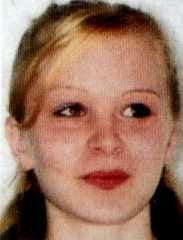



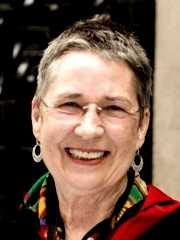
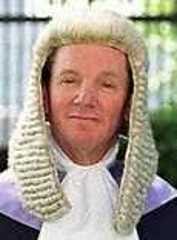


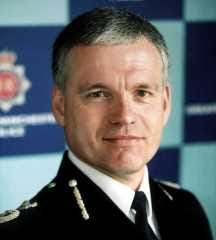



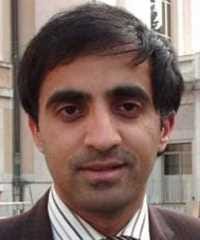


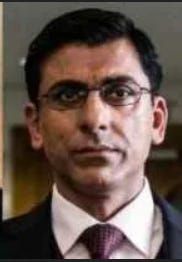




Wow if only the mainstream media did stories like this.